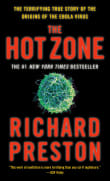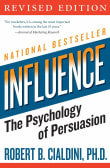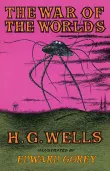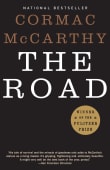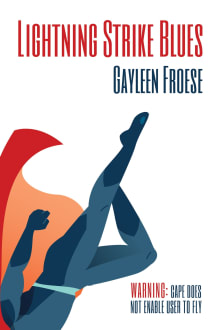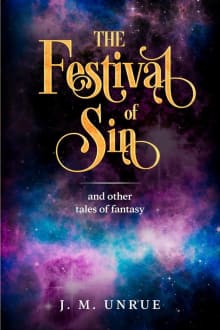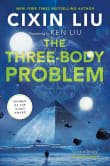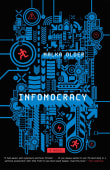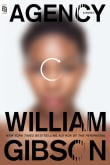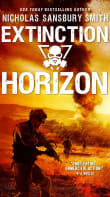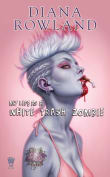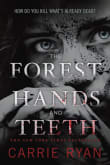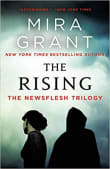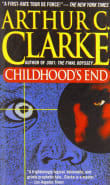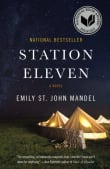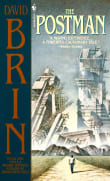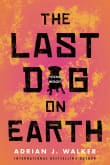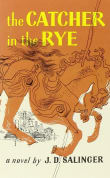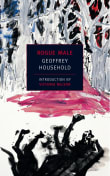World War Z
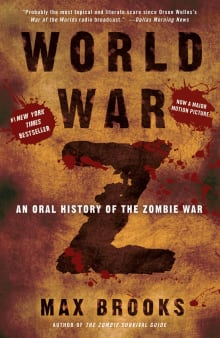
Book description
It began with rumours from China about another pandemic. Then the cases started to multiply and what had looked like the stirrings of a criminal underclass, even the beginning of a revolution, soon revealed itself to be much, much worse.
Faced with a future of mindless man-eating horror, humanity was…
Why read it?
24 authors picked World War Z as one of their favorite books. Why do they recommend it?

This is an absolute classic of the genre. Brooks draws in various ‘accounts’ of a recent zombie outbreak and structures them as if the broad details are common knowledge to his in-universe audience.
This approach means the real-world reader is always discovering new details and nuggets of information in a way that really whets the appetite while increasing the sense of horror at the way events unfolded in a world that isn’t quite our own.
From Chris' list on fictional non-fiction.

This book blew me away! This time, it wasn’t about science in a strict sense but rather the “scientific mindset” the book was written with. Every aspect of a real zombie war is honestly considered—all the ramifications of an event so enormous—versus the simplistic way filmmakers portray it.
How do you fight millions of things that never back down or die? They’d spread out, for instance, so you’d be finding zombies for decades later, maybe in small pieces. They don’t need to breathe, so you could “lose” them underwater until they grab you one day. And what about military strategy?…
From Johnny's list on Sci-Fi real science that justifies unreal things.

World War Z offers an intriguing insight into the method of warfighting. The zombies are attacking New York, and the US Army is there to stop them. But the ammunition the Army has brought is designed, as the expert on scene describes, to overwhelm and terrorize the enemy. The intent is not to kill the enemy so much as to break their spirit. The zombies, knowing no fear, just keep advancing, and the tactic is a failure.
I appreciate this insight into the psychology of war and the preference for “shock and awe” tactics rather than full-on destruction. Don’t get…
From Bennett's list on military sci-fi books that actually understand what it feels like to be in the military.
If you love World War Z...

This book is a fantastic collection of short stories about the Zombie Apocalypse. Some of the stories broach the subject of corruption, which enabled a local epidemic to spread globally.
I first read this book in 2006 with an “imagine if…..” frame of mind, but I watched world events unfold in 2020 from the perspective of “life imitating art.” I loved the author’s conversational style of storytelling and the believable characters he described. There are no hardcore action heroes, just regular people.
From Beau's list on casual (or non) readers.

The ‘zombie apocalypse’ scenario has been used for years by risk management professionals to make the examination of possible societal breakdowns more fun and/or interesting.
By focusing on a hazard people know, like hurricanes or wildfires, audiences come to the discussion with pre-existing biases and, in many cases, first-hand experience. This forces the communicator to counter such bias before getting to key messages.
There’s never been an actual zombie apocalypse (nor is there likely to ever be one…), which means the zombie scenario adequately ‘levels the field’. It forces audiences to think beyond their go-to assumptions and introduces levels of…
From Damon's list on expanding your thinking on disaster risk management.

Forget the Brad Pitt movie. The only way to consume World War Z is in the form of a book.
A series of interviews with survivors of the zombie apocalypse, it tells a huge story without robbing individual characters of their voice. People from every walk of life (doctors, politicians, soldiers, janitors) have an opportunity to share their experiences.
It’s a book that manages to be powerful and personal at the same time. I recommended World War Z to my neighborhood book club. At first, they were hesitant about reading horror, but in the end, all of them loved the…
From Barbara's list on character-driven horror with a heart.
If you love Max Brooks...

A globe-spanning story of a zombie apocalypse.
One journalist travels the world in the aftermath and interviews the heroes, villains, and ordinary people who survived. It was made into a film with Brad Pitt, which is quite different, but I love anything with a fast zombie. The whole book makes you glad to live in a non-apocalypse.
(If the apocalypse has broken out between me writing this and you reading it, I’m not surprised, but I am sorry. Seriously, find a copy of WWZ as it’s full of good tips for your current predicament.)
From Nat's list on reads in bed when it’s raining outside.

I know, I know. Most horror fans have read the book and watch the horrible Hollywood adaptation, but hear me out. I’m not recommending you re-read the book. I am recommending you listen to the 2014, all-stars cast, audiobook. This version of the audiobook is not read by a narrator but performed by a group of actors. The performances bring new life to the story.
This version also includes new “interviews” that didn’t make it to the original and some tie-ins to the movie.
I believe this is great for those familiar with the book, as well as those who…
From Ricardo's list on those who love a good nightmare.

I am a historian who loves zombie lore, so this book was basically made for me. It was also written by the son of one of my favorite comedians, authors, directors, producers of all time—Mel Brooks. World War Z presumes that a zombie apocalypse occurred and that this book is being published as a record of the events, based on oral interviews with people who experience it, all across the globe. It is a great introduction to public history and oral history, through the lens of a zombie pandemic. What is not to love?
From Julia's list on the enduring power of the dead in our lives.
If you love World War Z...

Another zombie novel with a refreshing spin, World War Z takes place, not at the outbreak or during an undead apocalypse, but many years afterward. Framed as a series of interviews with survivors, the various interviewees share their personal tales, each coming from a unique perspective. Rather than focusing on the flesh-eating gore that is the emphasis of most zombie tales, World War Z explores such topics as how people survived when the food supplies dwindled, or what were the best tools for hunting zombies at night, or what happened to those whose sanity simply could not handle the nightmare.…
From Christopher's list on putting a different spin on a popular genre.
Want books like World War Z?
Our community of 12,000+ authors has personally recommended 100 books like World War Z.



